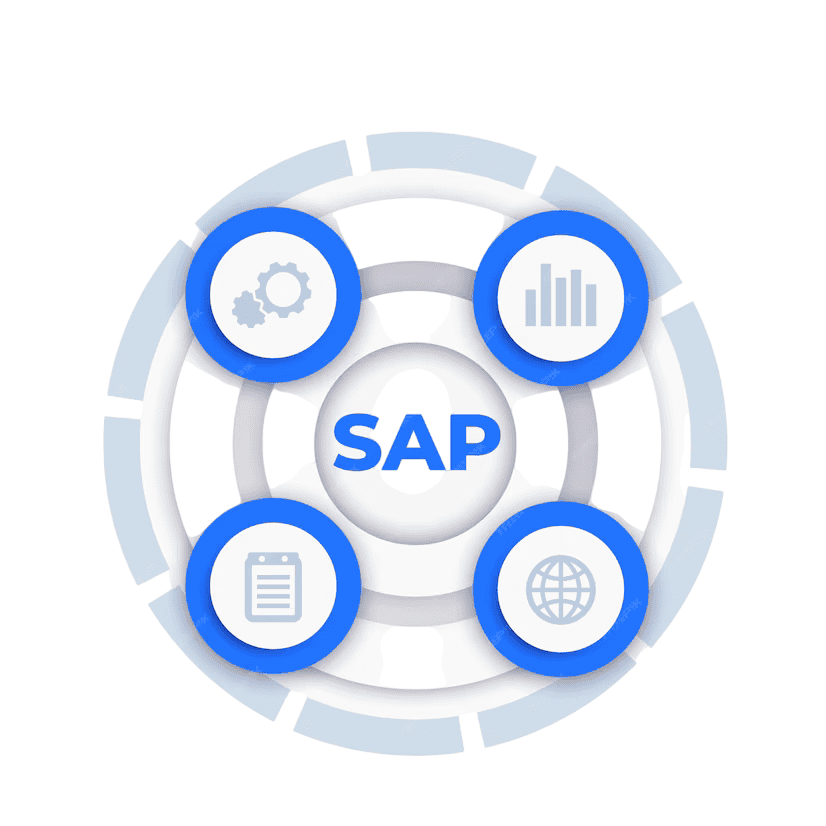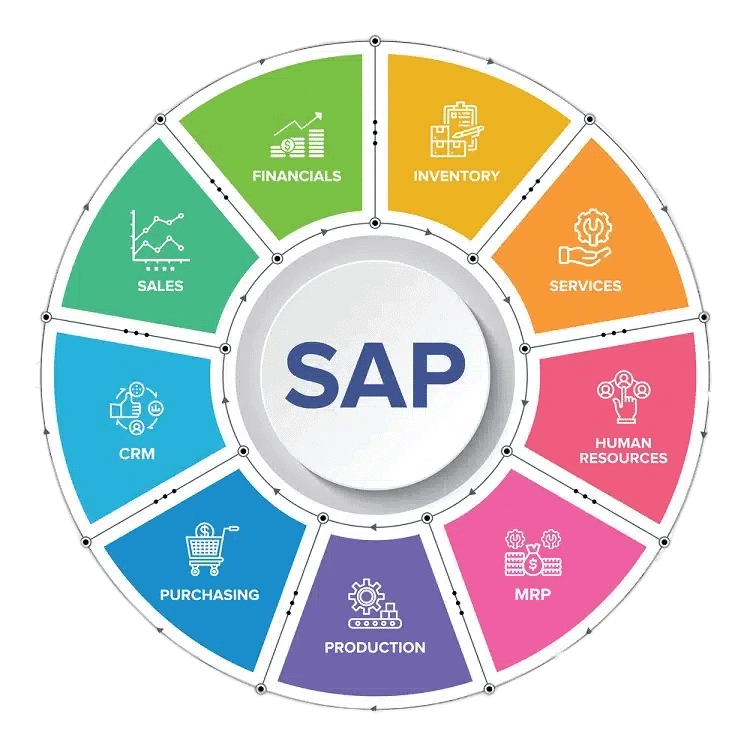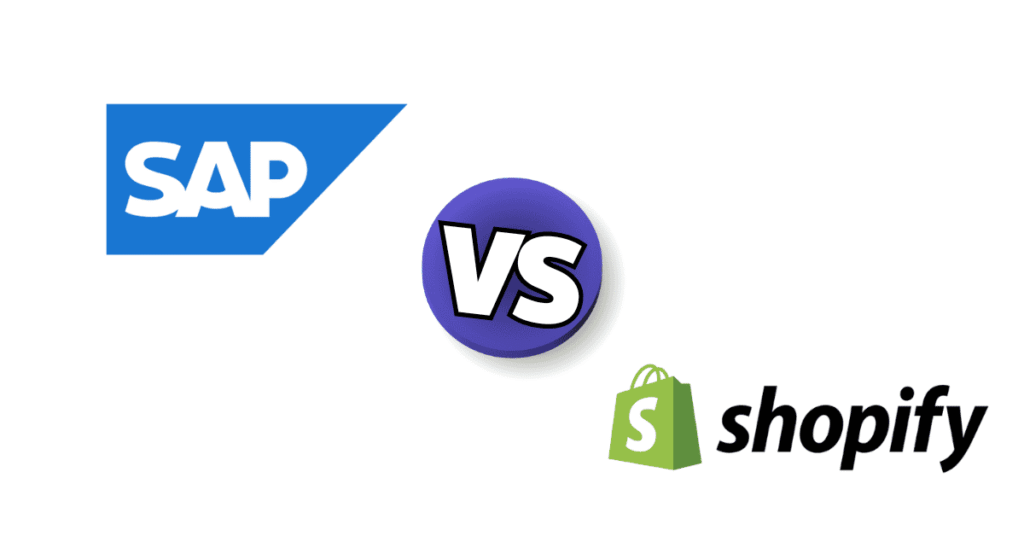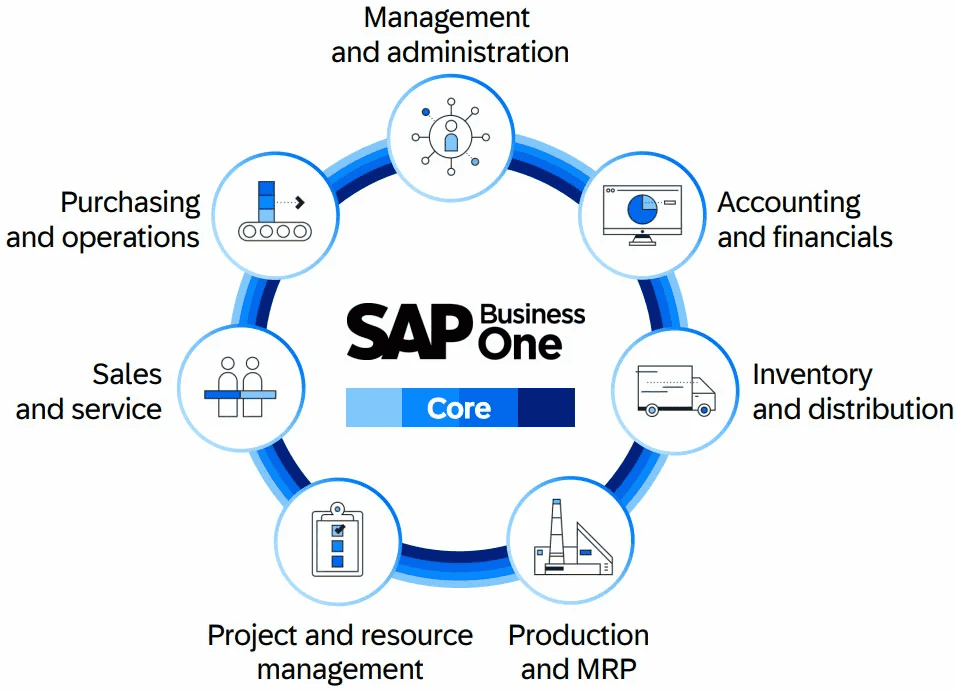Having a scalable, secure, and adaptable e-commerce platform is essential for business success in today’s fast-paced digital economy.
Selecting the best digital commerce solution becomes crucial as companies move toward global operations and individualized client experiences.
One of the most effective enterprise-grade e-commerce platforms available today is SAP Commerce Cloud.

SAP Commerce Cloud, formerly known as SAP Hybris, is made especially for big B2B and B2C companies that require more than simply a shopping cart.
It provides a wide range of features, including dynamic customisation, smooth ERP connectivity, multi-language and multi-currency capabilities, and sophisticated product information management.
SAP Commerce Cloud seeks to offer a unified commerce solution that grows with your goals, whether you’re managing intricate customer relationships, operating a global supply chain, or creating content-rich user experiences.
But with great power comes greater complexity—and often, higher costs. So, is SAP Commerce Cloud truly worth the investment in 2025? Or are there better, more agile alternatives for your enterprise?
In this in-depth review, we’ll explore what SAP Commerce Cloud has to offer, how it stacks up against leading competitors like Shopify Plus, its advantages and limitations, real-world user feedback, and whether it’s the right fit for your business.
What is SAP E-commerce Platform?
SAP Commerce Cloud is a comprehensive, cloud-based e-commerce platform designed to deliver personalized and seamless shopping experiences across multiple channels. It caters to various business models, including B2B, B2C, and B2B2C, making it a versatile choice for large enterprises.

SAP’s e-commerce solution is part of its SAP Customer Experience (CX) suite, which includes SAP Commerce Cloud (formerly Hybris). It’s designed for B2B, B2C, and B2B2C businesses, offering:
- Omnichannel capabilities (web, mobile, social, in-store)
- AI-driven personalization
- Seamless ERP & CRM integration (SAP S/4HANA, SAP CRM)
- Scalability for large enterprises
Market Position & Adoption 📊
- Used by 40% of Fortune 500 companies (Source: SAP)
- 15% YoY growth in cloud-based e-commerce adoption (Statista, 2023)
- Competes with Shopify Plus, Magento, Salesforce Commerce Cloud
Key Features of SAP E-commerce Platform

1. AI-Powered Personalization & Customer Experience
- Smart Recommendations: AI suggests products based on browsing history.
- Dynamic Pricing: Adjusts prices in real-time based on demand.
- Chatbots & Virtual Assistants: Improves customer support.
2. Seamless ERP & CRM Integration
- SAP S/4HANA Integration: Real-time inventory, order, and financial data sync.
- SAP CRM: Unified customer profiles for better targeting.
3. Omnichannel Selling
- Supports web, mobile, social, marketplaces, and in-store POS.
- Headless Commerce: Flexible front-end customization.
4. Scalability & Security
- Handles high traffic spikes (Black Friday-ready).
- GDPR & PCI-DSS compliant.
5. B2B & B2C Capabilities
- Self-service portals for wholesale buyers.
- Quote management & bulk ordering.
💰 SAP Commerce Cloud Pricing Plans (Estimated 2025)
| Plan Type | Suitable For | Key Features | Estimated Pricing* |
|---|---|---|---|
| Basic Plan | Mid-sized Enterprises | Core e-commerce features, PIM, order management, basic integrations | Starts at $120,000/year |
| Standard Plan | Large Enterprises | Includes advanced personalization, B2B/B2C support, SAP integrations | Starts at $250,000/year |
| Premium (Custom) | Global Enterprises | Full feature set, multi-region support, advanced security & analytics | Custom Quote (>$500K/year) |
| Add-ons & Integrations | Any | AI/ML modules, CPQ, marketing cloud, payment, CRM & 3rd-party integrations | Additional costs apply |
📌 Additional Costs to Consider
| Component | Estimated Cost* |
|---|---|
| Implementation & Setup | $100,000 – $500,000 (one-time) |
| Developer/Partner Fees | $150–$300/hour (or partner retainer model) |
| Custom Integrations | Varies based on complexity |
| SAP ERP/S4HANA Integration | Typically bundled or additional |
| Support & Maintenance | Included in license or separate SLAs |

Note:
- All prices are estimated and vary based on region, usage volume, cloud provider, and license agreement.
- SAP typically follows a subscription-based model with annual contracts and offers tailored pricing for each client.
🔢 Statistics & Market Performance
- 🚀 12.2 billion USD in GMV on SAP Commerce during Cyber Week 2024.
- 🏆 Ranked Leader in Digital Commerce Platforms by Gartner in 2024.
- 📈 Enterprises using SAP Commerce reported a 34% increase in repeat purchases due to personalization.
- ⏱️ 25% reduction in customer support queries via self-service features integration.
SAP E-commerce vs. Shopify Plus: Comparison Table

| Feature | SAP E-commerce | Shopify Plus |
|---|---|---|
| Target Audience | Large Enterprises, B2B, B2C | Mid-market, D2C brands |
| Customization | Highly customizable (Java-based) | Limited (Liquid templating) |
| Integration | Deep SAP ERP/CRM integration | 3rd-party apps (no native ERP) |
| Pricing | High (Enterprise pricing) | Starts at $2,000/month |
| Scalability | Excellent (Global enterprises) | Good (Up to $1M+ revenue) |
| Ease of Use | Complex (Needs IT team) | User-friendly (Low-code) |
| AI & Automation | Advanced (SAP AI Core) | Basic (Shopify Flow) |
Which One Should You Choose?
- SAP is best for large enterprises needing deep ERP integration.
- Shopify Plus suits scaling D2C brands with simpler needs.
User Feedback & Ratings
- G2 Rating: 4.2/5 ⭐ (Praise for scalability but criticized for complexity)
- TrustRadius: 8.5/10 (“Great for B2B, but setup is lengthy”)
What Users Say:
- “Once set up, SAP Commerce Cloud handles our global B2B operations flawlessly.” – IT Director, Manufacturing Co.
- “Implementation was costly, but ROI justified it.” – E-commerce Manager, Retail Chain.
💡 Why Should You Choose SAP Commerce Cloud?
Here’s why large-scale enterprises consider SAP Commerce Cloud a smart investment:

1. End-to-End Commerce Solution
It covers every aspect of the e-commerce journey—from product content to personalization, order management to fulfillment—under one ecosystem.
2. Globalization at Scale
With multilingual, multi-currency, and global tax compliance features, SAP Commerce Cloud allows businesses to go global without the growing pains. 🌍
3. Data-Driven Insights
Leveraging SAP Analytics and AI, businesses can optimize strategies using customer behavior, purchasing patterns, and operational data in real-time.
4. Unified Customer Experience
It empowers organizations to create hyper-personalized journeys, increasing customer loyalty and brand value.
5. Enterprise-Class Security
SAP is GDPR-compliant and implements enterprise-grade security protocols, ensuring your business and customer data are well protected. 🔐
📉 Drawbacks to Consider
| Concern | Details |
|---|---|
| High Cost | Best suited for large enterprises with high revenue and tech budget |
| Steep Learning Curve | Requires trained developers or partners for configuration & support |
| Longer Setup Time | Implementation may span weeks or months |
| Customization Needs | May require additional development for niche or unique use cases |
| Less Suitable for SMBs | Lacks the simplicity and affordability ideal for small businesses |
SAP Commerce Cloud Review 2025:
❓ Frequently Asked Questions (FAQs)

Q1: Is SAP Commerce Cloud suitable for small businesses?
A: SAP Commerce Cloud is primarily designed for large enterprises with complex requirements. Small businesses may find platforms like Shopify more suitable due to lower costs and ease of use.
Q2: How long does it take to implement SAP Commerce Cloud?
A: Implementation can take anywhere from several weeks to a few months, depending on the business complexity, customization needs, and integration requirements. Most enterprises engage SAP-certified consultants for smoother deployment. 🛠️
Q3: What industries typically use SAP Commerce Cloud?
A: It is widely used across industries like retail, manufacturing, automotive, telecom, and life sciences—any enterprise needing a unified, personalized, global e-commerce presence. 🌐
Q4: Does SAP Commerce Cloud support mobile commerce?
A: Yes. It is fully mobile-responsive and supports omnichannel selling, ensuring seamless user experiences across mobile, tablet, desktop, and even point-of-sale systems. 📱🛍️
Q5: Can I integrate third-party applications with SAP Commerce Cloud?
A: Yes. While it integrates tightly with other SAP products, it also supports APIs and webhooks for integrating with CRMs, ERPs, payment gateways, logistics tools, and more. 🔌
✨ Final Verdict: Is SAP Commerce Cloud Worth It?
Yes, but only if you’re a large-scale enterprise with complex needs. If your business requires:
- Extensive catalog management
- Global operations
- Tight ERP integration
- Personalization at scale
- Strong data compliance and security
Then SAP Commerce Cloud can deliver outstanding ROI over time.
Who It’s Best For:
- Large Enterprises
- B2B and B2C businesses
- Companies already using the SAP ecosystem
- Global brands with complex operations
Who Might Want to Look Elsewhere:
- Startups
- SMBs
- Budget-conscious brands
- Businesses with simple e-commerce needs
✅ Overall ReviewXpresso Ratings
| Category | Rating (Out of 5) |
|---|---|
| Ease of Use | ⭐⭐☆☆☆ (2.5) |
| Customization | ⭐⭐⭐⭐⭐ (5.0) |
| Integration Capabilities | ⭐⭐⭐⭐⭐ (5.0) |
| Customer Support | ⭐⭐⭐⭐☆ (4.0) |
| Value for Money | ⭐⭐⭐☆☆ (3.5) |
| Overall Performance | ⭐⭐⭐⭐☆ (4.5) |
📌 Key Takeaways
- 🛒 SAP Commerce Cloud is a powerhouse platform for serious enterprises needing advanced commerce features.
- 🛠️ Complex but customizable, best implemented with expert guidance.
- 📊 Powerful integrations, particularly with other SAP tools.
- 💸 Costly and may be overkill for SMBs, but just right for enterprise use cases.
Conclusion
SAP’s e-commerce platform is a powerhouse for large businesses but overkill for smaller brands.
If you’re a Fortune 500 or global B2B player, SAP Commerce Cloud delivers unmatched ERP synergy, AI tools, and scalability. However, if you’re a mid-sized retailer, Shopify Plus or Adobe Commerce may be better fits.
What’s your experience with SAP e-commerce? Let us know in the comments! 💬
🛒 Salesforce Commerce Cloud Review 2025: Is It the Right E-commerce Platform for Your Business?
Pingback: 🤖 ChatGPT Review 2025: A Deep Dive into OpenAI's AI Chatbot - Review Xpresso